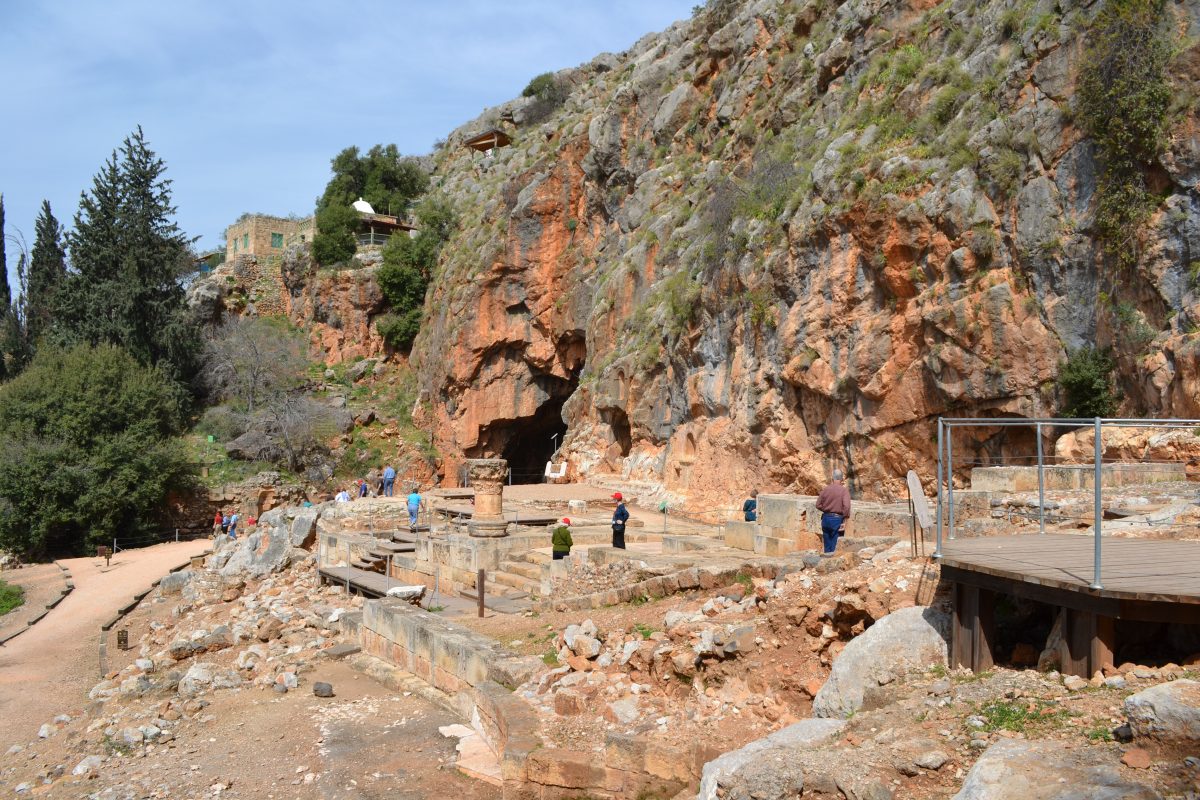Background Passages: Matthew 16:13-24; Luke 5:1-11; Matthew 4:18-22 and Luke 16:25-26
It’s baseball playoff season. I think I’m finally over the baseball strike of 1994-95 and find myself watching the games again with interest. I know. That’s a long time to hold a grudge.
It’s also the middle of the college football season and I love to watch college football.
I am a fan of the Houston Astros. I enjoy watching their games and I might even do a fist pump when they win. I rarely lose sleep if they blow the game in the ninth inning. I’m a fan of the Houston Astros.
I am a follower of the Texas Tech Red Raiders. I wear the shirt. I watch the games. I celebrate when they win. I will toss a pillow and lose hours of sleep with every defeat. During the week, I’ll check out a few Red Raider websites to get a perspective on last week’s game. I’ll read about the players and coaches. I’ll fret over next week’s game. Cut me and I’m pretty sure I bleed scarlet and black. I am a follower of Texas Tech.
Jesus talked a little about being a fan or being a follower.
Jesus and his disciples left the region of Caesarea Philippi after a brief retreat north of the Sea of Galilee. The deep discussion elicited a confession from Peter who declared the understanding of his heart.
While looking at the throng of people milling about that pagan city, Jesus asked those with him what the people were saying about him after almost three years of ministry.
The disciples shared a few names as if the rumors were laughable.
“Some say John the Baptist. Others say Elijah. Still others Jeremiah or one of the prophets.” (Matthew 16:13-14)
Then, Jesus asked the question he really wanted to ask.
“But what about you? Who do you say I am?”
While the others stared blankly at the ground, Peter declared with strength of conviction,
“You are the Christ, the Son of the living God.” (Matthew 16:16)
With that confession, Jesus gathered his disciples and began the journey back to Galilee, but the dialogue didn’t get easier. The teaching grew more intense as Jesus began to talk more plainly about his death on the cross.
Peter didn’t like the way this conversation was going.
“Peter took him aside and began to rebuke him. ‘Never, Lord! This shall never happen to you!’
“Jesus turned and said to Peter, ‘Get behind me Satan! You are a stumbling block to me; you do not have in mind the things of God, but the things of men.’
“Then Jesus said to his disciples, ‘If anyone would come after me, he must deny himself and take up his cross and follow me.” (Matthew 16:22-24)
It was those last two words that caught my attention this week. “Follow me.”
My church has been in a six-week long Bible study about discipleship. While family matters have kept me from attending every session, I have kept up with the study.
I underlined these words in the study guide. “Following Jesus is a serious, weighty calling. Taking up our cross means putting to death our desires and goals and following Jesus wherever he leads. Christians are supposed to look increasingly like Jesus.”
When Jesus told his disciples to take up the cross and follow him, it wasn’t the first time they had heard the call to follow.
At the beginning of his ministry, Jesus spent the early morning talking with a crowd that followed him down the coast of the Sea of Galilee. He came across a group of fishermen cleaning their nets after an unsuccessful night on the water where the fish were nowhere to be found.
Jesus climbed into Peter and Andrew’s boat and asked them to push off a few feet from shore so the water would add its acoustic effect to his voice.
“When he finished speaking, Jesus said to Peter, ‘Put into deep water and let down your nets for a catch.’ Peter answered, ‘Master, we’ve worked hard all night and haven’t caught anything. But, because you say so, I will let down the nets.
“When they had done so, they caught such a large number of fish that their nets began to break. …When Simon Peter saw this, he fell at Jesus’ knees and said, ‘Go away from me, Lord, I am a sinful man!’ For he and all his companions were astonished at the catch of fish they had taken, and so were James and John, the sons of Zebedee, Simon’s partners.”
Then, combining this passage with what we read in Matthew 5, Jesus said to Peter, Andrew, James and John, “Follow me and I will make you fishers of me.” (Luke 5:1-11 and Matthew 4:18-22)
There’s the phrase again, “Follow me.”
He said the same words to Matthew when he called him from the tax collector’s booth. To Phillip when he pulled him from a crowd. He said the same words to a rich, young ruler after he told him to rid himself of all the material things that stood between him and Jesus. “Follow me.”
I suspect they were words he extended in every conversation shared and every invitation given. “Follow me.”
What is behind this idea of following Jesus?
The Greek word akoloutheo gets translated in most versions of the Bible as follow, but it has a broader range of meanings. It can mean accompany, assist, pursue or attend. So, if the word can also mean assist or pursue, for instance, Jesus was not calling people to simply tag along. He called for personal engagement.
Akoloutheo is written in present tense meaning the action is in the here and now and its voice is active. So, when Jesus calls his people to follow, he means they are to do so in every moment of life. It is something they are to do. They can’t send someone to do it for them.
Jesus didn’t want his disciples to just listen and believe in him from a distance. He invited them to draw near, to join him, join and commit to the mission. Jesus wanted his disciples to be fully engaged with him in both learning and doing the work of God.
From the beginning of their call to the critical times near the end of Jesus’ earthly ministry, Jesus asked them to follow.
Think about what that meant for those first disciples. From the moment they began their journey with Jesus he taught and trained them. He sent them to preach as he preached. He asked them to serve those with great need. He prepared them to continue his work after his ministry was completed. He expected them to spread the gospel throughout the world.
Jesus is still inviting you and me to be his disciples. His followers. To personally join him, learn from him, and help him in gospel ministry. There is nothing passive about being a follower of Christ.
Timothy Keller founding pastor of Redeemer Presbyterian Church in New York City, put it this way, “Jesus says, ‘I want you to follow me so fully, intently, so enduringly that all other attachments in your life look weak by comparison.’”
We can’t be a disciple or difference maker until we are willing to deny ourselves…to set aside the life that matters to us and pick up the life that matters to God. To put God on the throne and make him Lord of our life. To make Christlike living our passion.
We can’t be a disciple or difference maker until we are willing to take up our cross. We tend to trivialize Jesus’ death on the cross if we think this term means simply facing stoically the difficulties of life that all experience, whether a follower of Christ or not.
It speaks to the complete obedience and devotion to the cause of Christ, no matter where it leads. To yield our hearts fully to his. After asking them to take up the cross and follow, Jesus spoke to the eternal value one gains by following him.
“For whoever wants to save his life will lose it, but whoever loses his life for me will find it. What good will it be for a man if he gains the whole world, yet forfeits his soul?” (Luke 16:25-26)
Jesus tells them that nothing in this life is worth keeping if it means missing out on eternity. So, when we deny ourselves and take up our cross all that’s left is to invest our lives completely into the kingdom of God. To follow.
New Testament theologian Scot McKnight put it this. way, “Those who aren’t following Jesus aren’t his followers. It’s that simple. Followers follow, and those who don’t follow aren’t followers. To follow Jesus means to follow Jesus into a society where justice rules, where love shapes everything. To follow Jesus means to take up his dream and work for it.”
I’m a fan of the Houston Astros. I’m a follower of the Texas Tech Red Raiders. But, there is more at stake than my athletic affiliations.
If I’m a fan of Jesus Christ, I might profess my faith in comfortable settings. I might toss a few dollars into the offering plate when it’s passed. I might even listen to a sermon or two. If I’m a fan of Christ, however, I am rarely personally invested in the work, sacrificing little time and energy for the cause of Christ.
If I am a follower of Christ, I cannot just passively believe in him. Being a follower is all about digging deeply into his teachings. Understanding how Jesus reacted to different situations in life. It is all about imitating him, his example and his works. It is all about being Christlike. It’s all about being a difference maker.
When you get right down to it, the question Jesus asked his disciples in Caesarea Philippi may have been as basic as that.
Will you be a fan or a follower?
It’s a decent question for us to answer.

